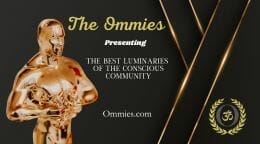Self-Knowledge: Do We Know Who We Are?

Mahatma Gandhi said, “I want freedom for the full expression of my personality.”
I began to think about that idea and it brought up another similar quotation that had hung for a full year on the board of my sixth grade classroom: “Personality is who people think you are; character is what God knows you are.” I think that whether you like the word personality or you like the word character, whatever one you choose to define yourself, it is important to accomplish that task.
We can know who we are by looking at our thinking, our speaking, and our actions. Let’s look at those one at a time.
To look at what we think, we can be reminded of the little voice of our conscious that has been in there watching all along. Know how that little voice talks to us, and makes comments that we don’t dare say out loud? Yes, that little voice. We have already been going within ourselves for much of our lives. It is simply about elevating those internal conversations to a position of greater authority in our life and honoring what we hear or see ourselves saying inside our own minds.
One of the keenest skills to appreciate in Asian cultures is that keen ability to observe, and this is what I’d recommend that you foster within yourself. In order to do that, you would more than likely have to speak less out loud, unless you are capable of doing two things simultaneously. You may discover great wisdom as you observe. You may also discover things that can be improved. Either way, you will be well served to observe what you are thinking, because, as Shakespeare said, “There is nothing either good or bad but thinking makes it so.” You can know who you are, if you observe yourself thinking.
To observe ourselves speaking requires a bit more skill, because we do have to be talking and observing at the same time. Our thinking always precedes our speaking. I believe we should start at the beginning, to observe what we think, before we can accomplish this part. Communicating our thoughts and ideas places us the highest position on the food chain, so this ability should be revered as one of our best capabilities. We want to acquire a way to speak fluidly, naturally and comfortably. If we can slow down while we are speaking and only say the most critical parts, our observation will benefit us well.
Some questions we might ask ourselves while speaking are: Are these words essential? Have I interrupted someone else’s words? Will what I am saying hurt someone? Will my words have a positive impact? Are my words of value to my listener? Am I articulating well? Is my tone appropriate? Do my words match what is really in my heart? Do my words permit me to remain in integrity with my true, core beliefs? Does the face of my listener reflect his interest or is he disinterested? What else remains when I quit speaking? Do I owe someone an apology? Remember: “It is better to keep your mouth closed and let people think you are a fool than to open it and remove all doubt.” ~ Samuel Clemens (Mark Twain) You can know who you are is true, when you observe yourself speaking.
Watching our actions is the last step toward self-knowledge. Why do you do the things you do? What motivates you? Where did you unfold your skills? Do you have enough skills to do a thing well? Each of us has at least one talent to do at least one thing really well. Do you know what that is for you? If you observe your actions keenly and objectively, you can discover that. Just doing that one thing well is a grand way to develop your identity.
Each of us has one unique gift. Beethoven was gifted musically. Fairuz was gifted with a magnificent voice. Einstein was gifted scientifically. Khalil Gibran was gifted poetically. If you could picture your own funeral, what gift would others say you had? We must learn to observe our actions from that perspective.
Pretend you are a detective who follows you around. What conclusions would he reach just by watching you? This is the kind of objectivity you need to know who you are. You might see strengths; you might see weaknesses. Whatever you see, observing your actions objectively will help you know who you are.
Our thinking, speaking, and actions are foundational knowledge that has to be set in place in our life and awareness, before we can ‘Be the Change,’ create more health, wealth, success, and happiness. I know you can do it.
Click HERE to Connect with your Daily Horoscope!
About the Author
Maria Khalifé expanded her life purpose to include helping others to live a masterful, successful life led by her own example and accomplishments. In 2008, she created The Change Coaching Institute (CCI). Her magazine Soufra Daimeh, and her cookbooks continuously inspire women.
http://www.changecoachinginstitute.com
Known as the Oprah of the Mideast, Maria Khalife is an acclaimed television personality, executive and a beloved media celebrity in the Arabic-speaking world with diverse international audiences. She is the host and executive producer of top-rated network television and radio programs, magazine publisher, author, an in-demand motivational speaker, seminar leader and internationally recognized lifestyle and well-being coach.











“If you could picture your own funeral, what gift would others say you had?” is the most powerful question I had ever come across. I want to ask this question to myself everyday!